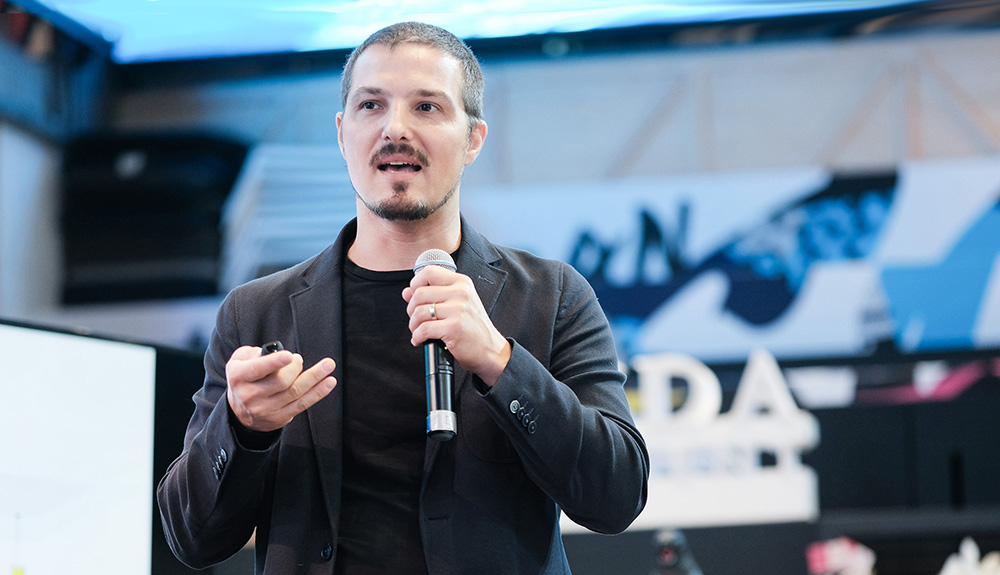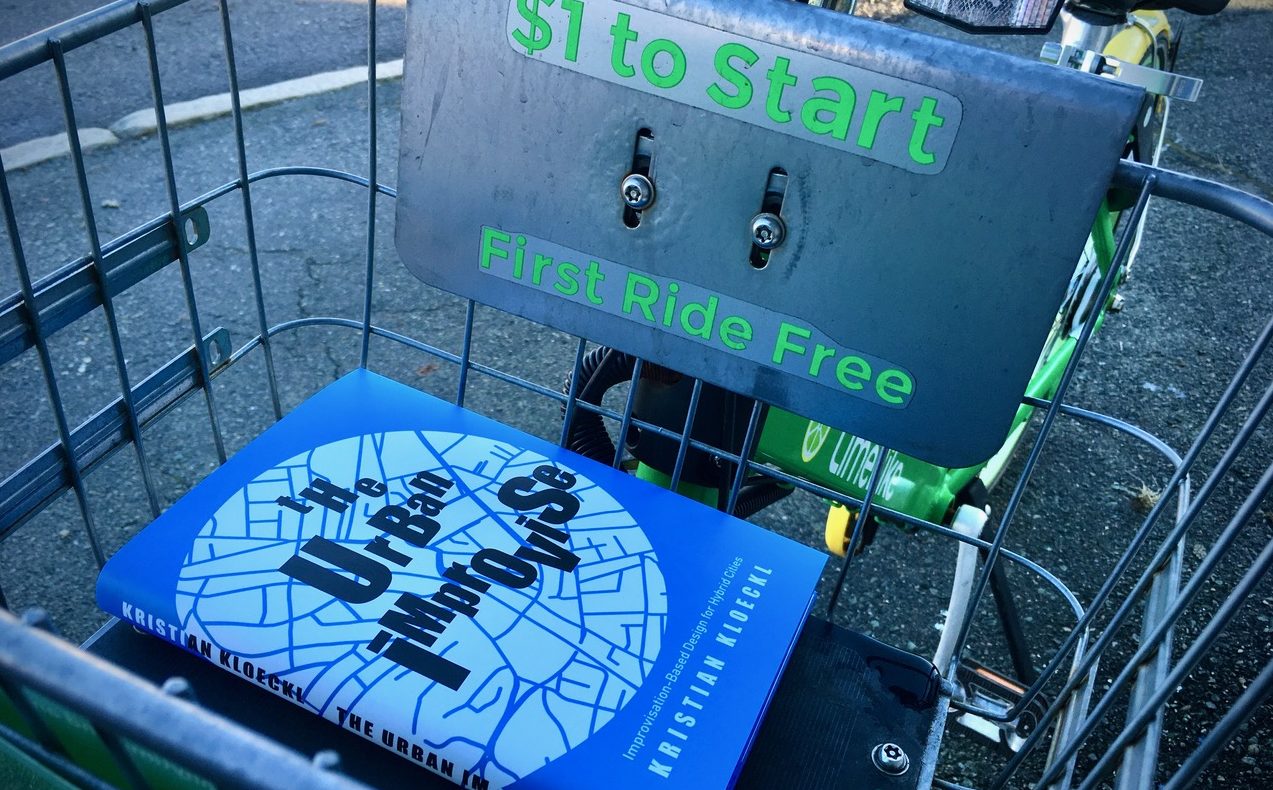A new book by Kristian Kloeckl, Associate Professor in CAMD’s Department of Art + Design and the School of Architecture, explores how cities can embrace improvisation to enhance urban life. The Urban Improvise – Improvisation-Based Design for Hybrid Cities (Yale University Press) addresses the potential of today’s digitally networked urban environments to go beyond planned behaviors and, instead, change and adapt dynamically. Written with architects, designers, planners, and urbanites in mind, Professor Kloeckl draws on research of digital cities and design theory, making improvisation useful and applicable to the condition of today’s technology-rich cities. He also proposes a new future for responsive urban design.
“Looking at performative notions of design, and, in particular script-less performance such as improvisation, is key in overcoming the stagnant conundrum of the tech- and control-centric smart city concept” said Professor Kloeckl. “The adaptable nature of today’s technology-imbued cities resembles dynamics of improvisation in the performing arts, and this book offers a new framework for thinking about design in urban environments that unleashes the potential of responsive technologies in sync with actual human experience on the ground.”

Professor Kloeckl, who has a PhD in Product and Communication Design, teaches several design courses at Northeastern and is the Head of the Experience Design program. His work on city design spans the globe, stretching as far as Singapore. His work has been featured in prestigious venues including the Museum of Modern Art in New York, the Vienna MAK, the Venice Architecture Biennale, the Singapore Art Museum, and the China Millennium Monument Museum of Digital Arts. Last fall, he spoke about the themes found in The Urban Improvise – Improvisation-Based Design for Hybrid Cities at Georgia Tech’s GVU Center, which is focused on interdisciplinary research that can bring together people from all areas of study.
Professor Kloeckl’s work is guided by an interest in exploring meaningful ways to disclose the potential of technological innovations by developing novel application scenarios and solutions as well as interface and interaction modalities to form valuable connections between people, objects, space, and the digital data layers that increasingly pervade our environment. The Urban Improvise – Improvisation-Based Design for Hybrid Cities was released earlier this month; more information, including book reviews, is found here, and it is available for order on Yale University Press and Amazon.


